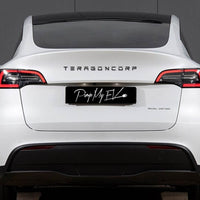In recent years, electric cars (EVs) have made great strides, but they are still shrouded in myths and misconceptions that may deter potential purchasers. The purpose of this blog post is to dispel some of these myths and provide a more accurate understanding of the benefits and realities of electric vehicles. Electric motors (EVs) are gaining in popularity, but there are still misconceptions surrounding them. Here are some of the most prevalent myths about electric vehicles and the truth behind them:
Limited Range Anxiety
One of the most widespread misconceptions about electric vehicles is range anxiety. Many individuals fear running out of power and becoming stranded without charging options. However, the average electric vehicle today has a range of over 200 miles on a single charge, which is sufficient for daily commutes and even lengthy road trips. Due to most electric vehicle charging and the expanding charging infrastructure, range anxiety is becoming obsolete.
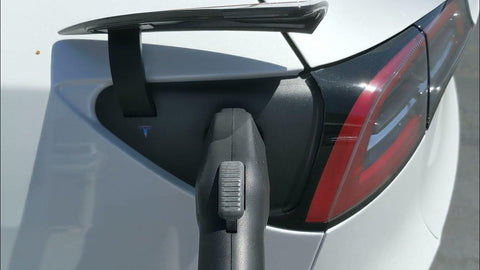
Lengthy Charging Times
Some believe that charging an electric vehicle takes too long and is less convenient than refueling at a petroleum station. While it's true that charging an electric vehicle is slower than filling it up with gas, modern charging technology has made significant advancements. At fast-charging stations, many EVs can be charged to 80% capacity in under an hour. Additionally, home charging options allow the electric motor to begin each day with a fully charged battery.
Limited Model Options
Another common misconception about combustion vehicles is that only a few EV models are available for purchase. In reality, the market for electric vehicles is expanding swiftly. Almost every major automaker currently offers an electric vehicle or intends to do so in the near future. This implies that electric options are available in various segments, including compact cars, SUVs, and luxury vehicles.
Limited Charging Infrastructure
According to some, there are insufficient charging stations to make EV ownership practical. However, the infrastructure for electric vehicle charging everywhere is expanding swiftly, and there are thousands of public charging stations around the world. Numerous businesses, parking lots, and highways now have charging stations, making it easier than ever to charge your electric vehicle.
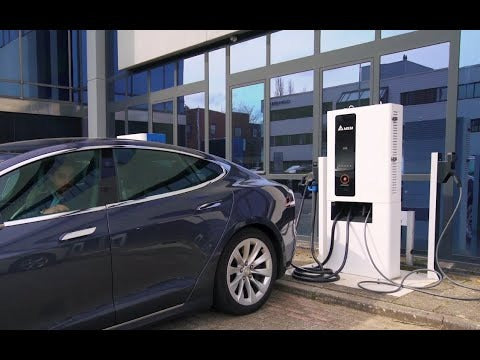
Environmental Impact
A common misconception is that electric vehicles are not as environmentally favorable as they claim to be. While it is true that the production of EV batteries has an impact on the environment, studies have shown that over the life of the vehicle, EVs are substantially more environmentally friendly than gasoline vehicles. They produce zero tailpipe emissions, and their environmental benefits will only increase as the electricity grid becomes greener. The shift toward electric vehicles is driven by the desire to reduce the environmental impact of fossil fuel engines.
Limited Performance
Early electric vehicles had a reputation for being sluggish and underpowered. However, modern EVs are enjoyable to drive due to their rapid acceleration and high torque. Many gasoline-powered sports vehicles are outperformed by a few high-end electric models.
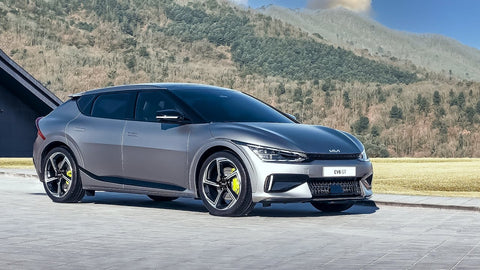
Batteries' Limited Lifespan
Many individuals believe that EV batteries have a limited tenure and will require expensive replacements. Despite the fact that batteries degrade over time, modern EVs are designed to last for decades. Manufacturers frequently provide lengthy warranties for their batteries, and advances in battery technology continue to enhance their durability. Lithium-ion batteries power electric vehicles, making them more sustainable and environmentally friendly than fossil fuel cars with traditional internal combustion engines, while EV charging stations continue to expand, supporting the transition to cleaner transportation.
EVs are Prohibitively Costly
Initially, electric vehicles were more expensive than gasoline-powered vehicles, and gasoline cars but they are becoming increasingly affordable. In recent years, the price of EV batteries has decreased dramatically, and many EVs are now eligible for government incentives. EVs are also significantly less expensive to operate than gasoline-powered vehicles due to their reduced energy costs and lower maintenance requirements.
Electric Vehicles Take Too Long to Power
The charging period for electric vehicles varies depending on the type of charger and battery size of the gasoline car. Using a rapid charger, however, many EVs can be charged to 80% or more within 30 minutes. And as infrastructure for EV charging improves, charging EVs will become even simpler and speedier.
EVs Lack Safety
In some instances, electric vehicles are even safer than gasoline-powered vehicles. EVs have a lower center of gravity than gas-powered vehicles, reducing their likelihood of rolling over. EVs have fewer movable parts than gasoline-powered vehicles, reducing their likelihood of breaking down.
Do the Electricity Grid's Wires have enough Capacity for Charging EVs?
A common misconception is that the electricity grid won't be able to manage the increased demand for electric vehicles (EVs). While it is true that an influx of EVs simultaneously charging could burden the grid, utility companies and governments are taking proactive measures to address this issue. To ensure the grid can accommodate the expanding number of electric vehicles, grid upgrades, and smart charging solutions are being implemented. In addition, many EV owners charge their vehicles during off-peak hours, which reduces the grid's load.
Charging an Electric Car is Inconvenient and Slow
Frequently, charging an electric vehicle is viewed as inconvenient and time-consuming. However, this misconception is no longer current. With the proliferation of fast-charging networks, many EVs can be charged to 80 percent in less than an hour, making long-distance travel possible. In addition, home charging enables EV owners to wake up to a completely charged vehicle, eliminating the need for frequent gas station stops.
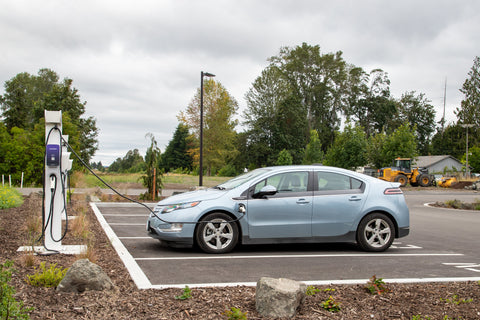
We'll end up with lots of EV Batteries going into Landfill
It is a common misconception that used EV batteries end up in landfills, posing an environmental problem. In reality, the majority of EV batteries have a second life after they are removed from vehicles. They can be repurposed for stationary energy storage, supplying fallback power to residences and businesses. When batteries reach the end of their useful life, there are recycling programs in place to recover valuable raw materials and reduce waste.
Electric Cars are Costly to Maintain and Repair
The lower maintenance costs of electric vehicles are one of their most notable advantages. EVs have fewer moving parts than conventional vehicles made with internal combustion engines, which reduces wear and strain. EVs typically have lower maintenance costs because they do not require oil changes, exhaust system repairs, or many other conventional vehicle services. While the initial purchase price of some EVs may be higher, the total cost of ownership may be lower over time.
EVs are Slower than Petrol and Diesel Cars
Contrary to the myth that electric vehicles are sluggish, many EVs are renowned for their rapid acceleration and high torque. The instantaneous power delivery of electric motors results in swift acceleration. Some high-end electric models can outperform many gasoline-powered sports cars, demonstrating that electric cars can be both economical and thrilling.
There's not Enough Renewable Energy to Support Widespread EV Use
Although the transition to electric cars will require more electricity, the argument that there is insufficient renewable energy is erroneous. The transition towards renewable energy sources such as wind power, solar, and hydropower is ongoing on a global scale. As the grid becomes more sustainable, charging electric vehicles will become more environmentally favorable. Numerous EV owners are already able to charge their vehicles with renewable energy, which further reduces their carbon imprint.
 :
:  :
: 











